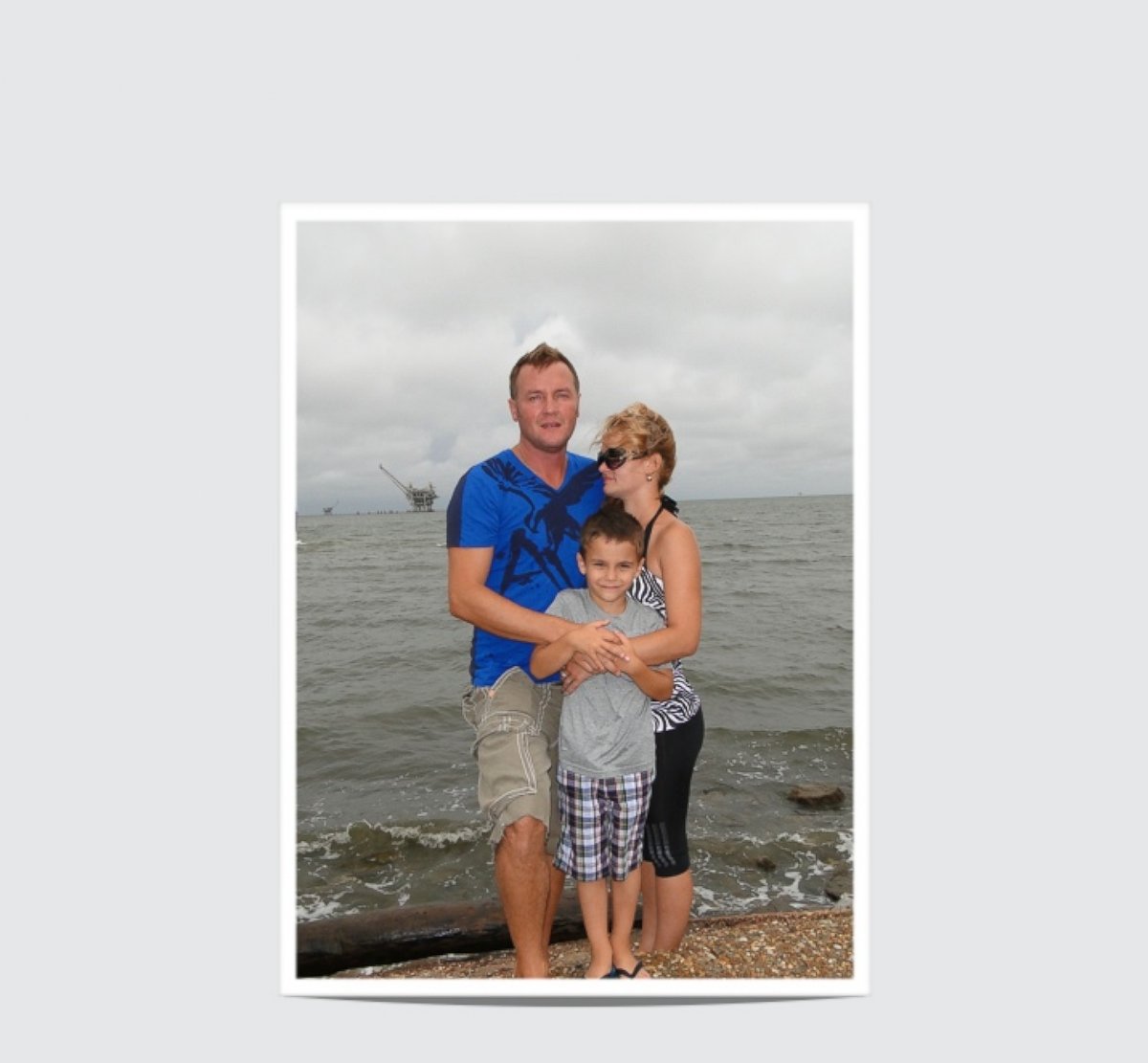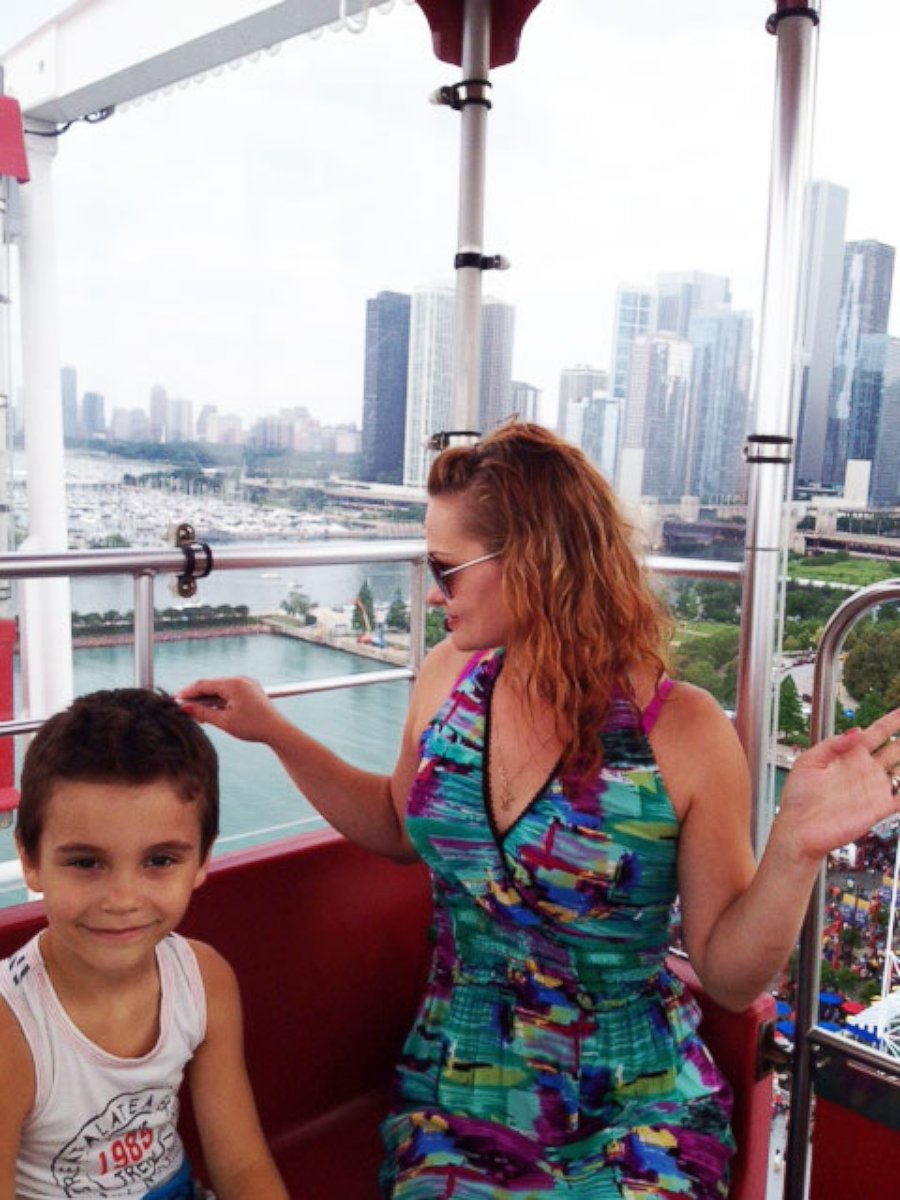Woman Disfigured After Cancer Misdiagnosis to Get Free Surgery
University of Louisville doctors will reconstruct Lessya Kotelevskaya's face.
— -- A woman who says she was left disfigured by radiation therapy for cancer that she never had is set to undergo surgery today to reconstruct her face and restore her dignity.
Lessya Kotelevskaya, 30, will have the million-dollar, 24-hour operation for free, thanks to a surgeon at the University of Louisville Hospital.
“It’s mind-boggling,” Kotelevskaya’s cousin, Greg Sennik, told ABC News. “I can’t even put it together how grateful we are.”
See hourly Twitter updates on Lessya Kotelevskaya’s surgery.
Kotelevskaya’s ordeal started a decade ago at a basketball game in her native Kazakhstan, when a cheering fan accidentally hit her in the jaw, according to Sennik. Thinking the persistent swelling stemmed from a cancerous tumor, doctors put Kotelevskaya through a grueling radiation treatment that impaired her ability to eat and talk, according to her American doctors.
She dropped to 79 pounds, lost her job and her husband and eventually became homeless as a result of the treatment for a tumor she never had, according to Sennik. She was convinced she would die from stage IV cancer until Sennik tracked her down in 2012 and insisted she seek help in the United States.
The cousins were close growing up in Ukraine before the break-up of the former Soviet Union but hadn’t seen each other since 1986, according to Sennik. They lost touch when she moved to Kazakhstan, though Sennik, who is now an American citizen, said he spent 25 years searching for Kotelevskaya.
Woman to Get New Face For Free After Scarring Radiation
No challenge too big for girl without eyes or nose.
Woman gets new face after assault.
Speaking no English, Kotelevskaya arrived in Kentucky in July 2013 with her son Erik, who is now 7 and enrolled in first grade.
“They are doing good and getting adjusted,” said Sennik, 43. “She is excited and nervous about the surgery and can’t wait. She hasn’t even been able to sleep for two weeks.”

Doctors at the University of Louisville Hospital did two preliminary surgeries last fall to stretch Kotelevskaya’s skin around the jaw so they could reconstruct her face.
Dr. Jarrod Little, a reconstructive surgeon from University of Louisville Physicians, has donated his time to perform today’s procedure.
"We have a lot of patients with this problem, but of the patients with this problem, this is about as bad as it gets," he told ABC's Louisville affiliate WHAS at a press conference June 20.
In an interview with ABC News, Little said Kotelevskaya could still only open her mouth about one millimeter and could not chew.
“She pulls food apart and jams it behind her teeth and it leaks out the other side," he said. "She has gotten really innovative dealing with it.”
Little said he will take part of Kotelevskaya’s leg bone to rebuild the right side of her jaw.
“She probably had a benign cyst on the jawbone, which a lot of people have, where the bone is weak,” said Little. “Someone fell on her and when her jaw cracked, they saw the cyst and did a biopsy to see if it was cancer. If you don’t see this often or a pathologist doesn’t know it, very often it can be mistaken for cancer under the microscope.”
The inside of Kotelevskaya's mouth, the jaw bone and outside cheek and neck were heavily radiated, according to Little.
“A lot of the tissue died," he said. "She has a hole in her check and no jaw bone.”

Today, Little will remove the dead tissue, then take part of Kotelevskaya’s leg bone and move it to her face. He will use the skin and blood vessels attached to the bone as a new inside mouth and cut the bone to make a jaw that will attach with screws and a titanium plate.
Kotelevskaya is expected to spend three weeks in the hospital recuperating. The first 72 hours will be critical, according to Little, because of the risk of stroke, which could undo all the reconstruction.
Sennik said the biggest surprise for Kotelevskaya has been all the attention she has received from Americans since ABC News first reported her story last year.
“People recognize her in Starbucks and buy her coffee,” he said. “She went to the grocery store and people stepped out of line and gave her flowers. She stood there crying. She had never had that before.”
“She is so grateful because people have been so wonderful,” Sennik added. “When she got her driver’s license, people recognized her when she had her picture taken.”
Kotelevskaya has been learning some English, according to Sennik. She was initially taking English classes but had to drop out because of pain from her preliminary surgeries. Her fellow students chipped in and bought her the textbook so she could learn from home, he said.
Sennik said he scoured the Internet and in 2012 found who he thought might be Kotelevskaya's sister on a Russian version of classmates.com. In her wedding photos, he recognized familiar relatives.
Sennik inquired about the family and offered to help them in any way he could, but the woman initially dismissed his overtures as "spam,” he said.
Then one day, the woman mentioned to her mother that someone named Oleg Sennik had been in touch.
"Her mother wrote me this letter saying that Lessya had cancer and a big hole in her chin and was starting to die," Sennik said.
For the next 18 months, Sennik, who works as a hairdresser in Louisville, flew back and forth to see Kotelevskaya, even taking her to a doctor in Ukraine who told them she never had cancer, he said.
Meanwhile, he told his hairdressing clients about his cousin's health problems. One was married to a doctor who suggested his colleagues at the University of Louisville might help.
Today, because of the generosity of the University of Louisville team, Kotelevskaya wants to go to nursing school.
“She was always afraid of doctors and hospitals because of what she had already experienced,” Sennik said. “But everyone has been so wonderful. The nurses have held her hand when she goes into the operating room. She is so grateful. She says, ‘Oh my God, I would love to work as a nurse to help people.’ The hospital has totally changed her mind.”
As for Little, he said he didn’t hesitate when asked to help Kotelevskaya, given her tragic story.
“Plastic surgery is typically associated with cosmetic stuff, and this is the other part of plastics that took 11 years of training after college,” he said. “This makes it all worthwhile.”




